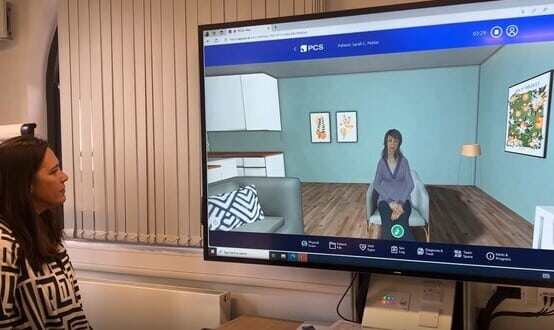Coventry Uni uses AI-generated avatars to train medical students
- 23 April 2024

Coventry University is using AI to create the next generation of virtual patients, helping to teach the healthcare workers of the future – and the software is dramatically cutting the time it takes to build a patient avatar.
By creating avatars that behave like a patient and give individualised answers to specific questions rather than just listing symptoms, students can interact with patient scenarios and hone their skills.
The large language model AI being used by Coventry University is also significantly speeding up the time it takes to create a virtual patient, meaning eventually people will be able to easily create their own customised situations.
The work is being led by PhD student Juliana Samson from Coventry University’s Research Centre for Healthcare and Communities, alongside AI firm PCS. They are creating the software so it learns as it goes, which will allow for the creation of more sophisticated avatars for student practice.
Samson said: “Previously you would have to create folders and folders of every single question and answer that you might imagine happens in a conversation and link it all together – it was a really laborious process and wasn’t as fluent or adaptable. Now we’re massively cutting the time that this needs in terms of the build and the responsiveness is off the scale.
“With this AI we have been able to create an avatar that actually behaves like a patient and can be created quickly. It would previously have taken around 100 hours to create a virtual patient, but we did a 30-minute activity and the draft was miles better than before.
“The software has stepped up a level. The AI can generate a lot of human conversations that you would need to have and students will be able to have conversations without traumatising or upsetting a real human, and if you get it wrong you can go again.”
Students are awarded points for asking pertinent questions on various topics. They can also read back the entire conversation afterwards to look at how they could improve. In addition, working with the digital avatars allow students to practice taking patient histories during a clinical conversation – something that would not normally happen until on placement.
Balazs Moldovanyi, CEO of PCS, said: “We are thrilled to provide Coventry University our most intelligent Spark virtual patient AI, now driven by an in-house trained generative large language model for never-before-seen realism in communication training. We are excited to see how far the university’s domain experts can take this AI with their custom scenarios.”
The next step in improving the virtual patients is a co-creation event to optimise the performance of the AI. This will involve a team of occupational therapy and physiotherapy students, academics and clinicians using the software to suggest ways in which it can be improved and made more realistic.
Back in March 2023, England became the first country in the world to launch clinical training in perinatal health using extended reality technology. Health Education England and Fracture Reality collaborated to develop a patient avatar allowing students to interact to build their skills.



